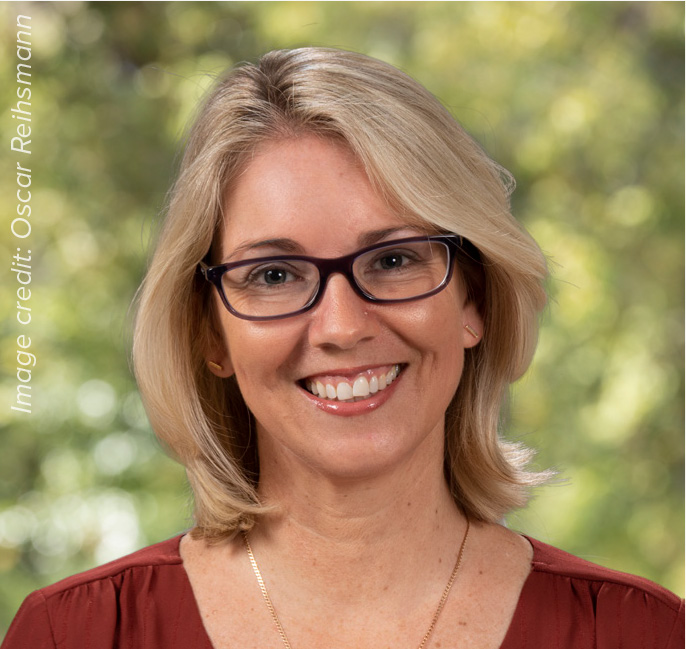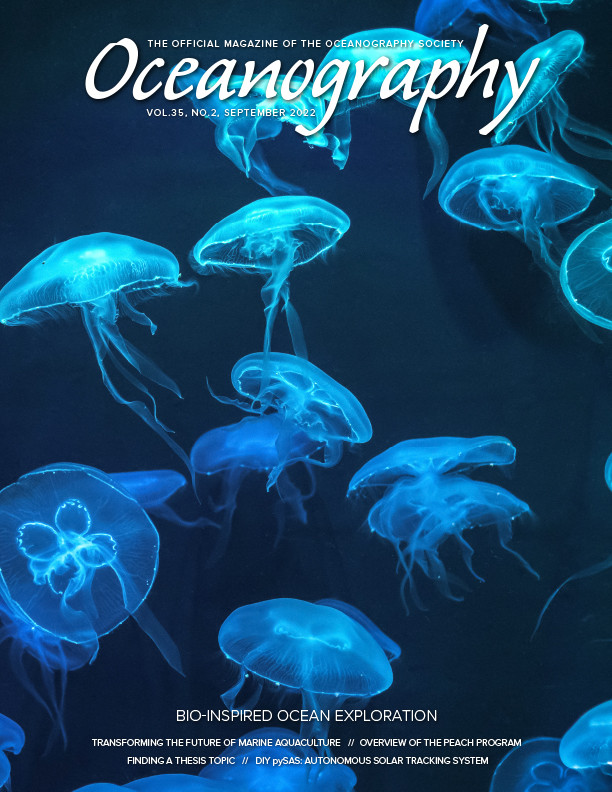Full Text
 |
CANDICE HALL, Research Oceanographer, US Army Engineer Research and Development Center, and PhD Candidate, University of Cape Town
Degree: When, where, what, and what in?
I grew up in sunny Cape Town, South Africa, and found any excuse to be in, on, or under the ocean. Hence, I studied oceanography at the Cape Peninsula University of Technology (CPUT). After graduating in 1998, I worked at a South African fisheries agency for a few years before deciding in 2000 to live in London, UK, for a few years.
I returned to full-time academic studies in 2003 and completed an honors degree at CPUT (2004) and an MSc in physical oceanography at the University of Cape Town (2008), both while working on full-time contracts at various South African and US research agencies. After completing my MSc research on cyclonic eddies in the Cape Basin of the South Atlantic Ocean, I officially relocated to San Diego, California, and have been based in the United States ever since.
Although still working full time, I started my PhD journey in 2018, again with the University of Cape Town. I expect to graduate with a PhD in physical oceanography at the end of 2022. My dissertation research is an assessment of four decades of wave power variability, knowledge that is critical for promoting coastal resilience.
Did you stay in academia at all, and if so, for how long?
No, I approached my career from the opposite direction—working full time and studying after hours as I honed in on my target interests within our field. My only full-time studies were during my undergraduate degree.
How did you go about searching for a job outside of the university setting?
During my undergraduate studies at CPUT, we were required to intern at the then South African Sea Fisheries Institute (Sea Fisheries), where we rotated through each department. This allowed not only full exposure to all of the disciplines within our field but also offered invaluable networking opportunities. One day I stumbled upon a researcher who was dissecting demersal fish in a lab. I asked a question about his work, and we started chatting. That random interaction led to him offering me a lab position when I graduated, working on otolith age determination of South African pelagic fish species. I was honestly that lucky in finding my first job. Ever since then, every job, bar one, has been through connections or recommendations from colleagues.
Is this the only job (post-academia) that you’ve had? If not, what else did you do?
After a few years at Sea Fisheries, I moved to the UK and worked various contract jobs that allowed me to travel around Europe. While there, one of my first-year professors offered me a three-month field oceanographer contract with the US NOAA Southwest Fisheries Science Center (SWFSC), researching the ecosystem component of their protected resources surveys. That three-month contract turned into five months, and became annual contracts working for what was then called the Protected Resources Division of SWFSC, where we investigated the abundances and distributions of marine mammals, birds, turtles, and flying fish. My colleagues studied the megafauna while I investigated the water’s physical, chemical, and biological characteristics.
After many years with SWFSC, I was offered a leadership position at a private oceanography company in Florida that I could not refuse. During my time there, we investigated ocean current variability and mesoscale features along the US coast.
I moved again in 2017, when I accepted a contract Lead Scientist position with the NOAA National Data Buoy Center (NDBC). My primary mission was to develop a science team to support the NDBC federal researchers—providing metrological and oceanographic guidance and recommendations to the Mission Control Center analysts and the NDBC branches. While there, I was tasked with the NDBC wave data responsibilities when the NDBC federal expert retired in 2018. As a blue water oceanographer, this wave research allowed me to expand my technical expertise from the ocean depths to free surface waves. This new interest drew me to my current position.
What is your current job? What path did you take to get there?
I’m currently a research oceanographer at the US Army Engineer Research and Development Center (ERDC) Coastal and Hydraulics Laboratory, an offer that stemmed from successful collaborations with ERDC wave researchers while at NDBC. ERDC focuses on applied research stemming from basic research, transitioning concepts into hands-on tools that our district and division counterparts can apply daily. Multiple ERDC labs cover various disciplines within different regions of the United States. Because of this diversity, ERDC is known for its focus on collaborations and world-class science that are used effectively in civil and military applications both nationally and internationally.
At the moment, I am the principal investigator (PI) of a three-year work unit on a National Coastal Wave Climates project, and a co-PI on two other projects: the Wave Information Study, and a Coastal Navigation Portfolio Management: Structure Portfolio Project. All of my work units focus on resilience within coastal communities.
Additionally, as researchers at ERDC, we are able to work on fascinating projects that are not solely related to our discipline or lab. For example, I’m also supporting a coastal storm risk management project with quantitative statistical ecosystem habitat modeling.
What did your oceanographic education (or academic career) give you that is useful in your current job?
My undergraduate studies were unique—as we were required to intern within each department at South Africa’s Sea Fisheries, we were given a strong understanding of the various disciplines and aspects within oceanography and marine biology. This exposure has allowed me to adapt to the various disciplines my profession and current position have led me through, and to continually develop as both a researcher and a person.
Academically, each subsequent degree hones our thought and task organization, writing skills, and logic. With a graduate degree, you’ve been trained to think critically and objectively, which is essential in any scientific field.
Is there any course or other training you would have liked to have had as part of your graduate education to meet the demands of the job market?
Project and Budget Management—those are courses that we should all take, regardless of our career paths. Additionally, I highly suggest honing programming skills. I can’t think of a single project that I’ve worked on in decades that didn’t require some sort of data analysis. I have acquired that knowledge independently (check out Coursera.org), and without the skills involved, my career would not have advanced as it has.
Is the job satisfying? What aspects of the job do you like best/least?
My current job is very satisfying! Although we have our primary research projects, we are also able to work with other researchers on their projects. This exposes us to myriad disciplines and researchers outside of our normal cohorts, both within the ERDC laboratories and from USACE districts that are located around the United States. Assisting them allows us to transfer our conceptual and theoretical research into real-time solutions that have immediate benefits to the public.
I really like that I never know what projects I’ll be working on from one year to the next. As for my least favorite aspect of the job—probably the project funding aspects that require research projects to conclude at the end of the fiscal year. These limitations can be challenging for research that requires directional shifts to achieve viable goals. However, this doesn’t happen very often, and program managers can be rather forgiving if necessary.
Do you have any recommendations for new grads looking for jobs?
The best advice I can give new grads is to not be afraid to reach out to others about possible career opportunities. Most people are willing to help or at least direct you to someone who can. Attend as many networking events as possible and present your work to anyone who will listen. Otherwise, seriously consider any prospects that come your way—most of us don’t find the perfect job on the first try, but you’ll learn something from every one of them.
Most importantly: continue to study. You don’t always have to enroll in official programs but learn a new coding language or skill set as often as you can. That will make you suitable to many markets and allow you to grow as a researcher. Once hired, investigate in-house training opportunities. Most agencies offer growth opportunities that will enhance your skills, as well as inadvertently facilitate interactions and networking with colleagues within your organization. Finally, good luck! Wishing you an exciting and gratifying career!
Candice Hall contributed to this article in her personal capacity. The views expressed are her own and do not necessarily represent the views of USACE or the US Government.

